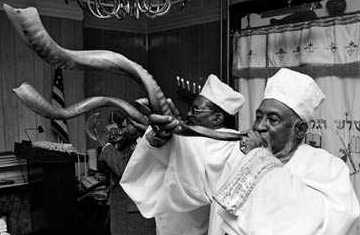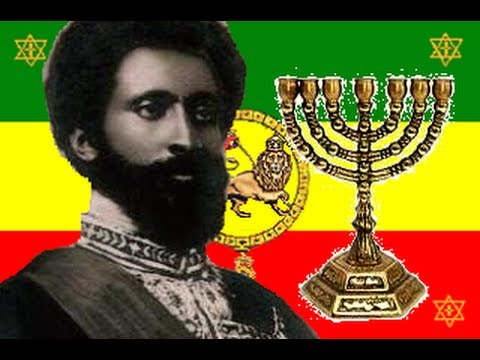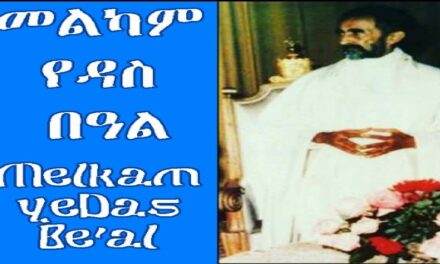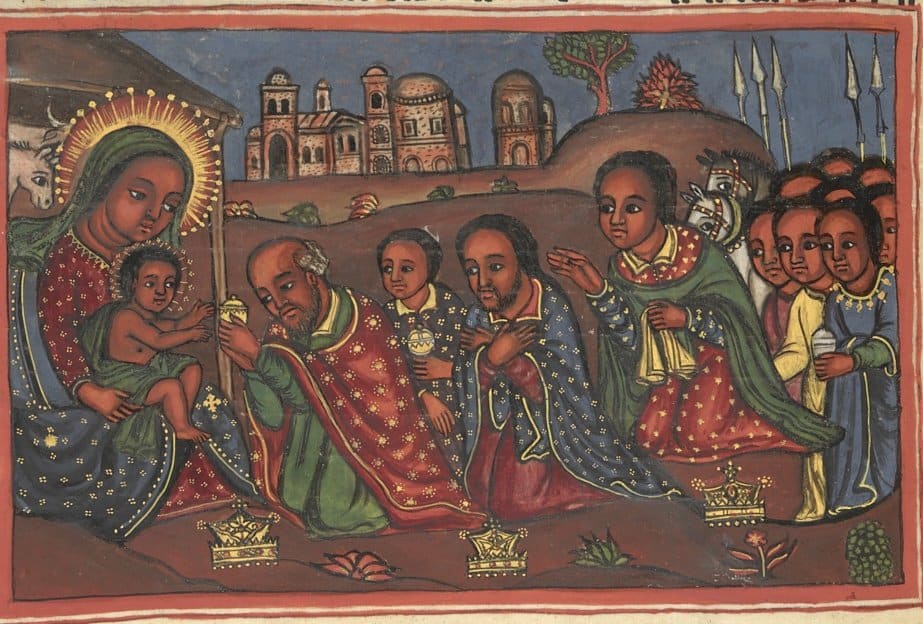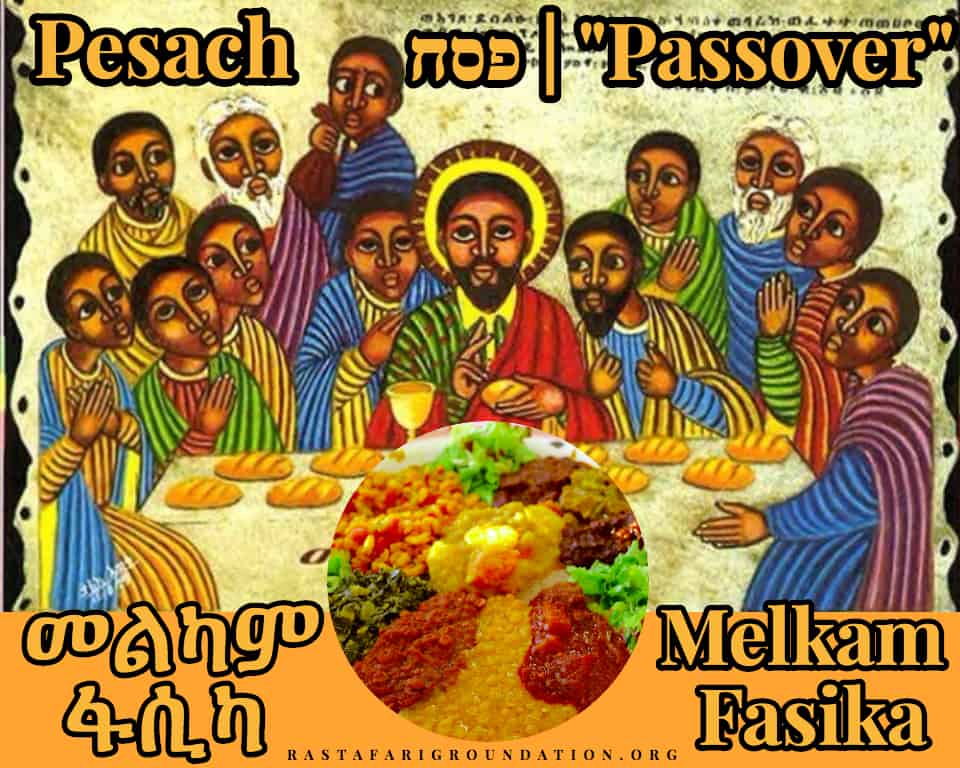Beginning of the Year — ראש השנה
Note: The regular readings are often interrupted with special readings on Lion of Judah (Jah people aka Jewish) holidays, special Sabbaths, and Rosh Chodesh. Refer to the annual Torah Portion schedule for these special portions. *For a PDF version of All the Torah Portions Schedule, click here to download!
Reading
| Yom Tov | Torah Reading | Haftarah | Brit Chadashah |
| Rosh Hashanah 1 (Sept. 6 eve - Sept. 7) |
Gen. 21:1-34; Num. 29:1-6 |
1 Sam. 1:1-2:10 | Matthew 24:29-36; Luke 1:39-55 |
| Rosh Hashanah 2 (Sept. 8 until sunset) |
Gen. 22:1-22:24; Num. 29:1-6 | Jer. 31:1-19 | 1 Thess. 4:13-18; 1 Cor. 15:51-54 |
1. Torah Reading
GENESIS 21 (Day 1) GENESIS 22 (Day 2)
2. Prophets Reading
1 SAMUEL 1:1-2:10 (Day 1) JEREMIAH 31:1-19 (Day 2)
3. New Testament Reading
MATTHEW 24:29-36; LUKE 1:39-55 (Day 1)
1 THESS. 4:13-18; 1 COR. 15:51-54 (Day 2)
Portion Summary
Rosh Hashanah (Hebrew: ראש השנה), (literally "head of the year"), is the Jewish New Year. It is the first of the High Holidays or Yamim Noraim ("Days of Awe"), celebrated ten days before Yom Kippur. Rosh Hashanah is observed on the first two days of Tishrei, the seventh month of the Hebrew calendar. It is described in the Torah as יום תרועה (Yom Teru'ah, a day of sounding [the Shofar]).
The Shofar and the Fall Festivals
The Messiah’s shofar will announce his arrival, the inauguration of His kingdom, and His coronation.
A shofar is an ancient musical horn made of ram's horn, used for Jewish religious purposes.
Yom Teru'ah (Jah Feast of Trumpets) aka Rastafari Rosh HaShanah occurs on the biblical calendar as the next appointed time after the festival of Shavu’ot. Ever since the bestowing of the Spirit at Pentecost we have been awaiting His return. The years have passed and turned into centuries. His disciples still wait for the sound of His trumpet that will herald His return. The annual blast of the shofar foreshadows that day when the heavens will be rent by the sound of Messiah’s trumpet.
JAH People (Jewish) eschatology teaches that the fall festivals allude to the time to come. First comes the judgment on Rosh HaShanah when the court is convened, then the confessions of iniquity on Yom Kippur when the court issues its verdict, and after that, the rejoicing of Sukkot and Shemini Atzeret.
Likewise, the time to come commences with a great day of judgment, corresponding to Yom Teruah (Jah Feast of Trumpets) aka Rosh HaShanah. After that, it is written, “I will sprinkle clean water on you, and you will be clean; I will cleanse you from all your filthiness” (Ezekiel 36:25). And the LORD says, “I will pardon those whom I leave as a remnant” (Jeremiah 50:20). These passages correspond to Yom Kippur.
After that comes Sukkot when we dwell in booths for seven days. In this regard, the prophet Isaiah says, “There will be a sukkah to give shade from the heat by day, and refuge and protection from the storm and the rain” (Isaiah 4:6). This is why it is called the season of rejoicing.
Finally, Shemini Atzeret concludes the festivals, corresponding to that day when the time of the nations will be finished and Israel will rejoice.
The sound of Messiah’s shofar will announce His arrival, the inauguration of His kingdom, and His coronation. The world will repent and renounce its wickedness. He will bring a fresh revelation of God to the world, transcending the revelation at Sinai, and the Torah will go forth from Zion as it once did from Sinai.
The trumpet blast that heralds His arrival will be a warning to the wicked. He will rebuild the holy Temple in Jerusalem. He is the son who was bound like Isaac, and in his merit God will forgive Israel their sins. He will fill the world with the fear of the LORD, and all nations will stand in judgment before Him. He will gather the exiles of Israel, for He “will send forth His angels with a great trumpet and they will gather together His elect from the four winds, from one end of the sky to the other” (Matthew 24:31). Then “the trumpet will sound, and the dead will be raised imperishable” (1 Corinthians 15:52).
According to the Talmud, the blowing of the shofar on Rosh HaShanah confuses Satan. The sound of the shofar on Rosh HaShanah frightens him because it reminds him that his time is short. He dreads the shofar blast of the Messiah that will signal the final redemption.
When Satan hears the shofar of Rosh HaShanah, he exclaims in terror, “It is the shofar of the day of judgment! The time is short when I will be swallowed up, as it says, ‘He will swallow up death for all time’” (Tosafot).
FAIR USE NOTICE:
This site may at times contain copyrighted material the use of which has not always been specifically authorized by the copyright owner. We are making such material available in our efforts to advance understanding of environmental, political, human rights, economic, democracy, scientific, and social justice issues, etc. We believe this constitutes a 'fair use' of any such copyrighted material as provided for in section 107 of the US Copyright Law. If you wish to use copyrighted material from this site for purposes of your own that go beyond 'fair use', you must obtain permission from the copyright owner.

